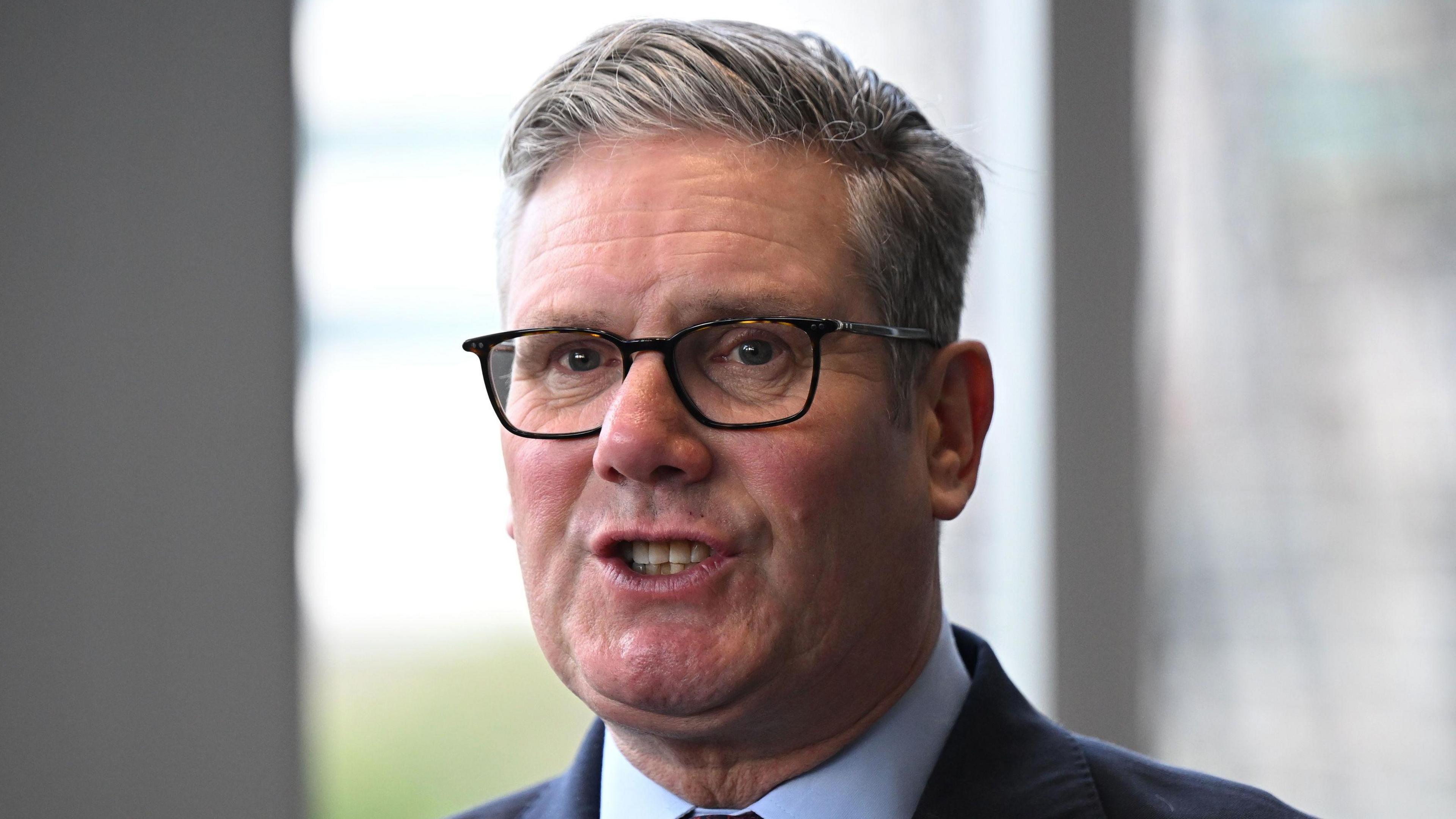Starmer and Zelensky discuss US peace plan for Ukraine

- Published
Prime Minister Sir Keir Starmer has said that "Ukraine must determine its future", after speaking to President Zelensky about a US-backed peace plan.
There are concerns some of the reported proposals appear to heavily reflect many of Moscow's demands.
The White House has pushed back on claims Ukraine was not involved in the drafting of the plan, which emerged after meetings between the US and Russia.
In a TV address, Zelensky said: "Now is one of the most difficult moments in our history - Ukraine can now face a very difficult choice: either losing its dignity or losing a key partner."
He said he would work "calmly with America and all partners" adding: "I will try to convince them and propose alternatives, but we will definitely not give the enemy a reason to say that Ukraine does not want peace."
Following a call with Zelensky alongside French President Emmanuel Macron and German Chancellor Friedrich Merz, Sir Keir said Donald Trump wanted a "just and lasting peace" but stressed "all matters to do with Ukraine must be determined ultimately by Ukraine".
Sir Keir spoke to Zelensky from South Africa, where he is attending the G20 summit of world leaders.
Speaking to reporters after the call, the PM said: "We all want a just and lasting peace. That's what the president of America wants, and that's what we all want. And so we need to work from where we are to that end.
"But the principle that Ukraine must determine its future under its sovereignty is a fundamental principle."
The widely leaked draft plan includes proposals which Kyiv had previously ruled out, including ceding areas of the eastern Donetsk region that it still controls, reducing the size of its army, and pledging not to join the Nato military alliance.
After his call with European leaders, Zelensky said in a post on X: "We value the efforts of the United States, President Trump, and his team aimed at ending this war. We are working on the document prepared by the American side. This must be a plan that ensures a real and dignified peace."
He added that the leaders were "co-ordinating closely to make sure that the principled stances are taken into account".
Europe appears to have had little say over the drafting of the plan, which does not mention the efforts led by the UK and France to provide an international reassurance force in Ukraine, should there be a ceasefire.
Instead, the draft explicitly rules out the presence of foreign troops.
Kremlin spokesperson Dmitri Peskov said Russia was yet to receive anything official from the US on its peace plan and "there has been no substantive discussion of those points".
He added that Russia remained "completely open to peace talks".

Sign up for our Politics Essential newsletter to keep up with the inner workings of Westminster and beyond.